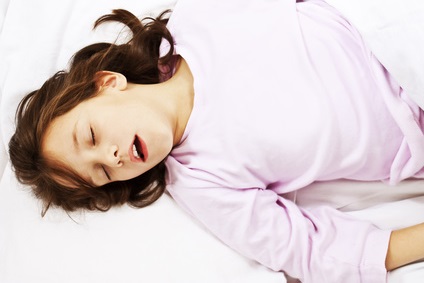Hard bowel movements in children is a symptom usually associated with constipation. Constipation is a functional disorder of the intestine that delays bowel movements and in some cases the stool is only released incompletely, which causes the stool to harden. The causes of this bowel dysfunction can be very different, which is why there are different treatment options for hard bowel movements in children.
Table of Contents
description

First of all, hard bowel movements in children are characterized by their comparatively dry and lumpy consistency. If it is done regularly and in small portions, there are no complaints. However, it is mostly a symptom of constipation. In these cases, hard bowel movements may be accompanied by stool stiffness, heavy pressing, painful emptying, and bleeding from tears in the anus. Abdominal pain, gas, bloating, loss of appetite and nausea can also be associated with hard bowel movements and constipation. Depending on the duration of the complaints, a distinction is made between an acute and a chronic form in hard bowel movements in children.
causes
Too little fluid intake can also be a problem size Role-play. In children, constipation with hard bowel movements can also have a strong psychological component. Due to painful bowel movements, children can get used to fear holding back their stool and thus delaying their bowel movements.
Since the stool is then in the large intestine for a longer period of time, too much fluid is withdrawn from the food porridge, which leads to dehydration and further hardening of the stool. The renewed pain with further bowel movements can result in the stool being held back and the hard bowel movement in children becoming chronic.
In toddlers, hard bowel movements can also occur in connection with cleanliness education. In rare cases, physical illnesses can also lead to constipation with hard bowel movements. These include various nerve dysfunctions, an underactive thyroid, diabetes mellitus and congenital malformations of the intestine. Bowel narrowing due to tumors and irritable bowel syndrome can also be accompanied by hard bowel movements. However, these diseases occur very rarely in children.
If bedriddenness or medication is necessary due to other illnesses, this can also lead to hard bowel movements in children. Without treatment, regardless of the cause, there is a risk that constipation and hard bowel movements become chronic in children.
Diseases
- Nerve dysfunction
- Hypothyroidism
- Diabetes mellitus
- intestinal narrowing
- intestinal tumor
When to the doctor?
Hard bowel movements should be discussed with the pediatrician if this type of bowel movement persists for a few days. A visit to the doctor in connection with bowel movements in children becomes particularly urgent when parents suspect constipation.
This can also be manifested by non-specific abdominal pain, which the child complains about continuously. Constipation occurs when the child feels pain when weaning due to the hardness of the droppings and then stops. When pressing hard, so-called anal fissures easily occur. This means the smallest tears in the anal mucosa, mostly due to hard bowel movements.
Such fissures do not always have to be visible to the naked eye, but can cause severe pain to the child. This leads to a vicious cycle in the child due to hard feces: by keeping the feces, the feces are increasingly thickened in the abdomen and correspondingly harder. When trying to squeeze it out, there are more and more fissures and consequently more and more pain, which in turn leads to an attempt to continue.
This cycle of constipation due to hard bowel movements must be broken as quickly as possible by medical help. The doctor can prescribe medication that softens the stool and thus enables less painful emptying.
Diagnosis and course
If hard bowel movements occur in children for longer than a short time or cause acute severe symptoms, a doctor should definitely be consulted. He will first create a detailed anamnesis in the parents’ interview and, if necessary, feel the abdomen. If organic causes are suspected, an ultrasound or X-ray examination and, in rare cases, an intestinal pressure measurement are carried out. A blood test and tissue samples can also be taken. If it is evident that there are psychological problems, a child psychologist is called in to clarify the causes of the digestive difficulties and the hard stool during the therapeutic discussion.
complications
Bowel movements, which have a very firm consistency, can make emptying the bowel uncomfortable, strenuous or even painful. In children, this can cause them to feel fear before they go to the toilet. The affected children try to avoid or defer bowel movements, which in turn further exacerbates the problem. Abdominal pain and abdominal cramps can then occur as a result of hard stool. But also complaints that apparently are not related to the firm stool consistency can be observed. This includes flatulence and nausea.
In addition, injuries in the anal area can result in fecal sales and thus an increased risk of inflammation. This can happen with the first stool heel, or due to the recurring heavy stress on the anal area. Mechanical stress can also increase the risk of inflammation in the intestine itself. In rare cases, persistent hard stool consistency can lead to the formation of fecal stones come. These can a. lead to an intestinal obstruction, which requires immediate emergency medical treatment.
Basically, however, it is important to see a pediatrician in the case of long-lasting or frequently recurring hard stools and have the causes clarified. Should an illness be the basis, this can lead to further complications corresponding to the illness.
Treatment and therapy
As a short-term treatment in acute cases, an enema can ensure that hard stool is loosened up and the intestine can empty without pain. Laxative drugs can also regulate bowel movements in children. Non-medicinal preparations such as milk sugar, plum cubes or fig syrup can also ensure that the consistency of the bowel movements returns to normal. If there are tears in the anus due to the hard stool, pain-relieving ointments in addition to the actual wound healing can ensure that the children learn to empty the intestine again without fear.
Nutritional advice can also be useful so that the choice of suitable foods can stimulate intestinal activity. Child psychological treatment can also be used for severe anxiety or other psychological problems associated with constipation and hard bowel movements. If there are physical causes for the chronic constipation and the hard bowel movements associated with discomfort, surgical intervention may be necessary. This is particularly the case with congenital malformations of the intestine.
However, surgical measures are rare exceptions when it comes to treating hard bowel movements. Another experimental treatment for irritable bowel syndrome and other bowel diseases that can be associated with hard bowel movements is stool transplantation. The stool and the intestinal flora contained in it from a healthy donor are transferred to the intestinal tract of the patient in order to reduce the indigestion to treat.
Outlook and forecast
Hard bowel movements in children have a favorable prognosis if the symptom is temporary. Phases of hard bowel movements can occur when, for example, children eat and drink little and have consumed a lot of sweets as a result of an illness. If this is only a short phase of the appearance of factors that promote hard bowel movements, the consistency of the excretions should quickly return to normal. In this case, long-term consequences for the intestine are not to be expected and the overall prognosis is accordingly good.
The prognosis for hard bowel movements in children is less favorable if this problem persists for a very long time. A vicious cycle is then easily created that is difficult to break: the hard bowel movements cause pain when emptying and many children then instinctively try to hold back the chair. Due to the longer dwell time in the intestine, the feces continue to thicken and become even harder. This makes emptying all the more painful, and fissures can develop. If these symptoms persist, the intestine can expand. Then more and more feces must accumulate until a strong urge to stool is triggered. Such intestinal dilation can only go back as a result of long-term consequences and regular emptying under plasticizers and toilet training. In this respect, a forecast is difficult.
prevention
Since the most common cause of hard bowel movements in children is improper nutrition, the best prevention is to offer as healthy and varied a diet that is rich in fiber. In addition to wholegrain products of all kinds, all types of fruit except bananas and plenty of vegetables are particularly recommended. Having several smaller meals spread throughout the day instead of three large main meals together with sufficient hydration also ensures that bowel activity is stimulated and hard bowel movements in children are prevented.
On the other hand, products made from white flour, the particularly stuffing bananas and sweets of all kinds, and especially chocolate, should be avoided. Babies and toddlers who only occasionally suffer from hard bowel movements can also receive milk sugar, which loosens the stool and promotes the development of a healthy intestinal flora. In such a case, older children can eat flax seeds or plum cubes.
There should be a relaxed atmosphere in which bowel movements are normal and commonplace. If, for any reason, hard stool occurs for a short time, which causes painful symptoms, the bowel activity should be normalized promptly by adjusting the diet or by giving digestive aids so that no anxiety can arise. However, enemas or laxatives are not suitable as a preventive measure against hard bowel movements in children, as they can impair the natural bowel function in the medium term. Therefore, they should only be used after consultation with the treating doctor.
RELATED ITEMS
-
Child hair loss: causes and treatment
Practical help When the comb is full of hair or bald spots suddenly appear on the head, the shock is great. These causes…
-

Dizziness in the child – causes, treatment & prevention
Dizziness in the child is a normal phenomenon in childhood, for example at very hot temperatures, with fever or…
-

Snoring in children causes, consequences – treatment
Many parents know the problem of being woken up by the snoring partner at night. However, they are irritated when the usual snoring sounds come on…
-

Diabetes in children »causes, symptoms & treatment
The vast majority (95%) of diabetic children develop congenital type 1 diabetes, the acquired form, type 2 diabetes, occurs…
